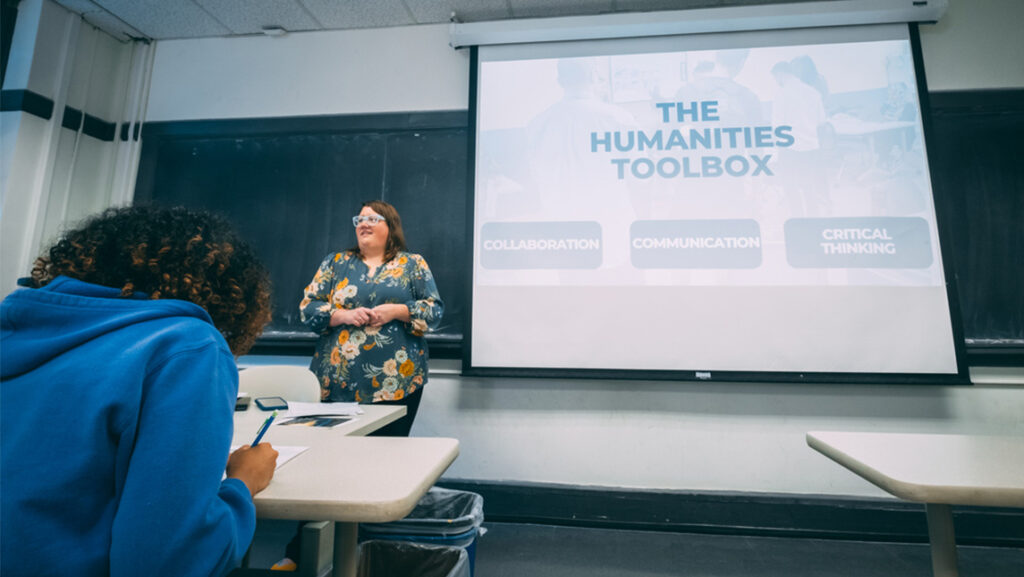Adapted from the spring 2017 UNCG Research Magazine
Dr. Michael Zimmerman’s research in theoretical ethics is acclaimed for its incisive argumentation, nuanced insights, and major advances. He’s a leading writer on moral obligation, moral responsibility, value theory, and the theory of punishment. With nine books — the most recent with Oxford University Press — and a host of articles in prestigious academic journals, the professor of philosophy is prolific. Zimmerman also delivered the Hägerström Lectures in Sweden in 2011. The lecture series is internationally known for featuring some of the most eminent philosophers of our time.
Basic questions
“Most research asks ‘What can we do to improve our knowledge?’ In philosophy, we tend to consider questions prior to this, such as ‘What is knowledge?’ and ‘How can we know anything?’
“Similar fundamental questions have preoccupied me throughout my career: ‘What is it to be morally obligated to do something?’ ‘What is it to be morally responsible for something?’ ‘How are moral obligation and responsibility even possible?’
“For example, our having freedom of will seems to be a precondition of our being morally responsible for anything. We believe we have such freedom, but do we? It’s reasonable to think that everything that happens, including everything we do, has a cause. If that’s true, then, in principle, we could trace the cause of our actions back to events that took place before our birth. If what we do now has its roots in a time before we came into existence, then how can we have the control necessary for being morally responsible for our behavior? People have been thumping their heads against this wall for millennia.”
Theory vs. practice
“Much of what’s in the press and on people’s minds has to do with practical matters. Does the president have an obligation to divest in order to avoid conflicts of interest? Is a woman in the later stages of pregnancy obligated not to have an abortion? But my research focuses on underlying theoretical issues. I ask, ‘What conditions must be satisfied for someone to have any moral obligations at all?’ We have to consider these fundamental questions before we can be confident about our answers to more practical questions.”
Is ignorance an excuse?
“I’m interested in how ignorance of right and wrong can affect our responsibility for our actions. Suppose some terrorist secretly rewired a light switch so that, when you flipped it, you detonated a bomb. Most would say you’re not to blame for the destruction you caused. It looks like ignorance undercuts moral responsibility.
“But does ignorance always provide an excuse? We can be ignorant of a variety of things. Imagine you knew the switch had been rewired but thought you were doing the right thing in detonating the bomb. This is presumably the mindset of many terrorists. Does that ignorance provide an excuse? I’ve argued that we should be hesitant to blame terrorists for the terrible things they do. That’s an unsettling conclusion, but it’s where my argument has led me.”
Moral obligation
“Ignorance can affect not only whether we are morally responsible for failing to meet an obligation, but it can also affect what obligations we have in the first place. If you’re pointing a gun at me, and the only way I can defend myself is to shoot you first, then many would say that I am under no obligation not to shoot you. But what if what you’re holding is a water pistol, only it looks like a real gun to me? We saw this play out in the Iraq War, with our faulty intelligence regarding weapons of mass destruction.”
Punishment
“I have argued that almost no state punishment is morally justified. Many find this thesis repugnant, but, again, that’s where my argument has led me.
“The first problem with punishment revolves around ignorance. Did the defendant know that he was doing something wrong?
“The second problem has to do with luck. Suppose Smith and Jones are assassins. Both fire at their targets, but only Smith manages to kill someone — Jones’s bullet was intercepted by a passing bird. Typically, Smith would receive a greater punishment. But what did Jones do to be less blameworthy? It was just luck that he didn’t kill his target.
“You can push this back further and further. Maybe what stopped Jones from killing someone wasn’t a bird but a good upbringing, whereas Smith was raised in terrible conditions. Such considerations are really corrosive; they cast doubt on the conventional justifications of punishment.”
Are you really sure?
“I wish more people took the time to question their basic convictions. It’s easy to make mistakes; by the same token, it’s hard to provide rational support for one’s views. It’s just as important to engage in critical reflection on one’s own views as on the views of others. This is something I try to impress upon my students. Everyone’s views are subject to criticism, including your own. Recognizing that fact can be very humbling, and it should help you give a full and fair hearing to those who disagree with you.”
“Are you sure?” originally appeared in the spring 2017 UNCG Research Magazine.
Interview by Mike Harris & Sangeetha Shivaji
Learn more at https://philosophy.uncg.edu



